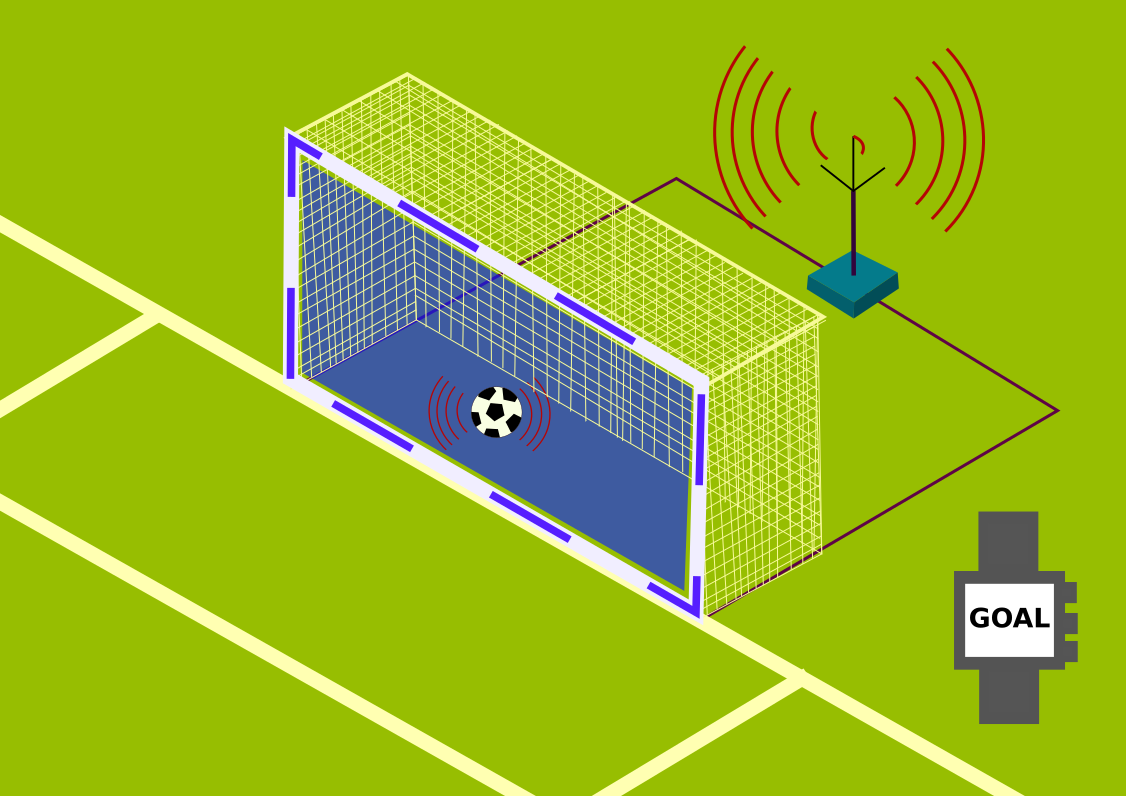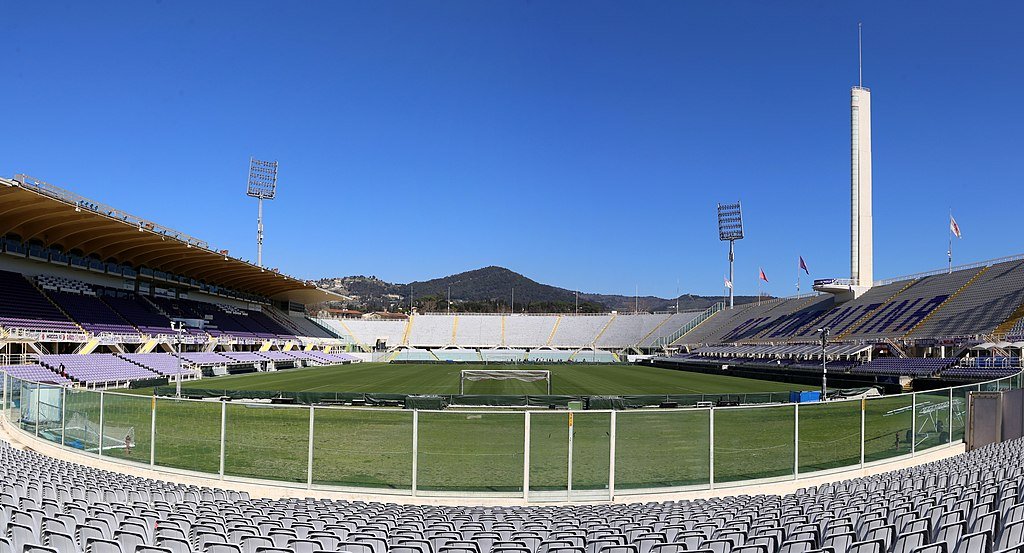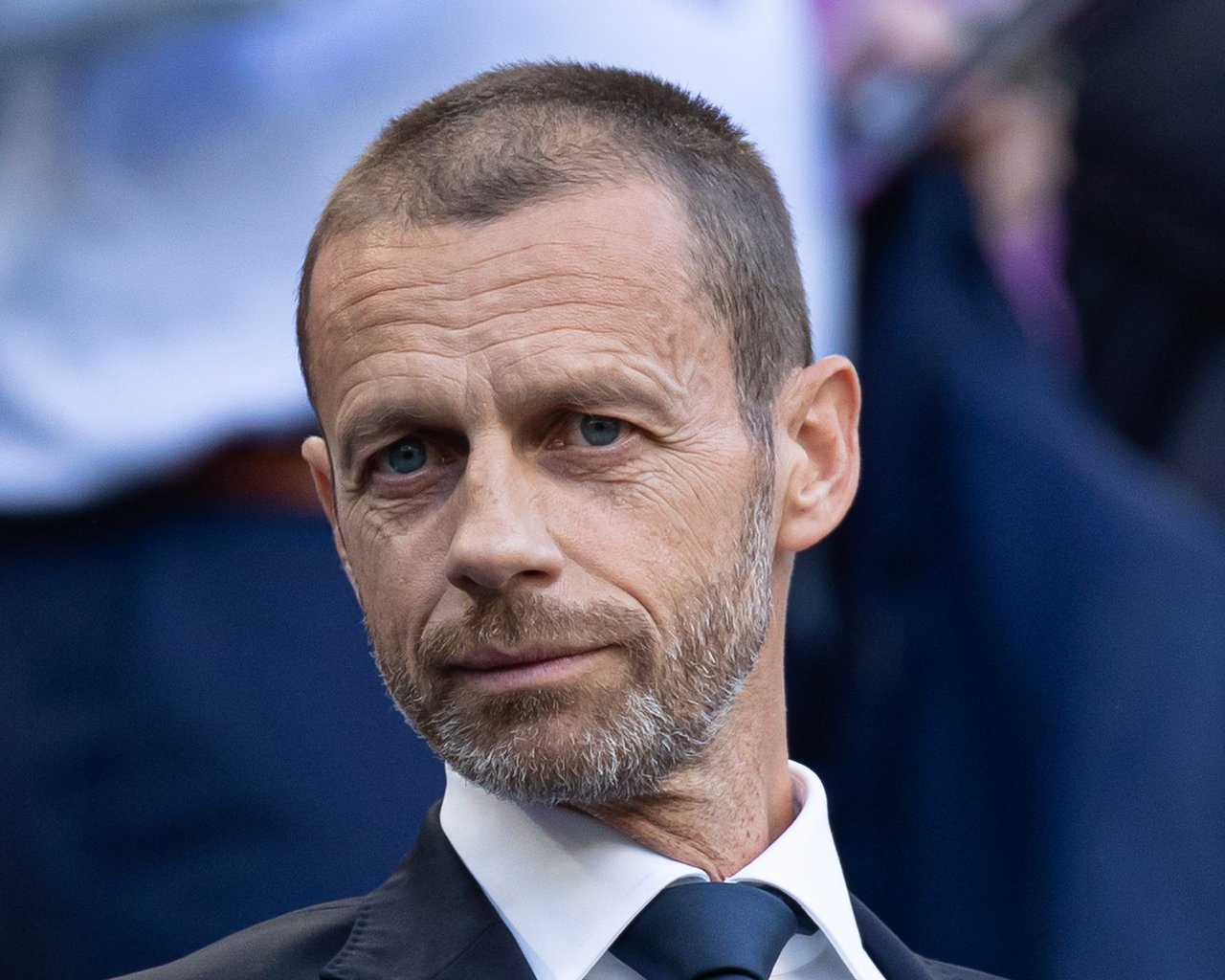
Image by Ranjithsiji, CC BY-SA 4.0 , attraverso Wikimedia Commons
TECNOLOGIA E TRIBUNALI |
|---|
Se promettete di perdonarmi e che il fatto non costituirà pregiudiziale futura nell'accostarsi ai miei contenuti, aprirò il post di oggi con le parole del presidente dell''UEFA, lo sloveno Alexander Ceferin:
L'UEFA è da sempre impegnata nel difendere i valori sportivi europei, il criterio di merito nelle competizioni e una solidarietà finanziaria, tra club più ricchi e gli altri che occupano un posto più in basso nella piramide.
Prendetevi ora tutto il tempo che volete per dar libero sfogo alle risate, dopo di che, se non ne avete avuto abbastanza, continuate pure con la lettura. Perché mancherebbe solo un accenno al rispetto della libera concorrenza, per completare un quadretto dal potere comico involontario capace di far invidia ad alcuni opinionisti (prezzolati) che gravitano intorno al mondo del pallone nostrano.
Come non parlare di merito infatti, quando uno dei migliori quattro campionati europei viene falsato da una penalizzazione appioppata a stagione in corso (e altri rischiano di ripetere lo scempio, sulla medesima falsariga)? O di solidarietà finanziaria, proprio nell'anno in cui, da un punto di vista economico, si è verificata una netta spaccatura tra uno dei tornei continentali e tutto il resto del movimento?

Lo Stadio Artemio Franchi di Firenze. Foto da Sailko, CC BY 3.0, attraverso Wikimedia Commons
Ma l'ente monopolista del pallone europeo, che non a caso, come le peggiori dittature insegnano, presenterà un unico candidato alla presidenza in occasione delle prossime votazioni (sempre Ceferin), non ci pensa affatto a limitarsi ad alcune chiacchierate a senso unico, raccolte sempre dai medesimi organi di informazione, e negli ultimi giorni è tornata a far parlare di sé per un paio di episodi a dir poco discutibili.
Nella partita di Conference League disputata allo Stadio Artemio Franchi di Firenze, tra i padroni di casa della Fiorentina e i portoghesi del Braga, è andata in scena infatti una singolare battaglia tra elementi tecnologici. Al quarto minuto del secondo tempo, con gli ospiti in vantaggio per 2-1, un goal del brasiliano Arthur Cabral è stato prima convalidato dalla Goal Line Technology, poi misteriosamente annullato in seguito ad un consulto VAR.
In che modo gli arbitri davanti al monitor abbiano potuto scorgere, da fotogrammi tutt'altro che precisi, estrapolati da inquadrature poco nitide, l'eventuale errore commesso dalla tecnologia di porta, è un qualcosa che sfugge all'umana comprensione. Di certo rimane il fatto che quanto accaduto nel capoluogo toscano è da considerarsi un unicum piuttosto insolito, mai accaduto prima, ma verificatosi proprio in occasione di una gara tenuta all'interno di una competizione UEFA.
La stranezza si è rivelata di proporzioni talmente evidenti da spingere alcuni malpensanti a sollevare addirittura il dubbio che, dietro all'episodio, si potesse celare lo spettro delle scommesse. I quattro goal di vantaggio ottenuti dalla Viola in Portogallo del resto, capaci di chiudere il discorso qualificazione, avrebbero trasformato la pressoché inutile gara di ritorno nel bersaglio ideale per eventuali accordi sottobanco, ma onestamente, per quanto il mio lato indagatore rimanga sempre attivo, ritengo poco probabile questa ipotesi.

Il presidente dell'UEFA, Alexander Ceferin. Foto da Steffen Prößdorf, CC BY-SA 4.0, via Wikimedia Commons
La soluzione di solito è sempre la più semplice, ed in questo caso parlerebbe di inadeguatezza. Delle due l'una: o gli arbitri inviati dall'UEFA a dirigere la gara sono dei perfetti incapaci, o il sistema tecnologico al quale Ceferin e soci hanno affidato la revisione dei goal fantasma (in Conference League è curato da un fornitore diverso rispetto alle altre due competizioni) risulta totalmente inaffidabile.
Comunque la si volti, l'ennesima pessima figura, bissata dalle strane (forse nemmeno tanto, visti i tempi in cui viviamo) dichiarazioni di due insoliti cani da guardia, che nella giornata di ieri ci hanno tenuto ad abbaiare in favore dell'UEFA stessa in vista del prossimo pronunciamento dell'Alta Corte di Giustizia Europea sulla vicenda Super League.
Secondo lo scozzese Ian Forrester e il portoghese José Luís Da Cruz Vilaça, la sentenza attesa per i prossimi mesi darà inequivocabilmente ragione ai monopolisti di Nyon. Fin qui potrebbe sembrare il semplice parere di due presunti esperti, se non fosse altro che entrambi hanno ricoperto la carica di giudice in passato proprio per il medesimo organo di giustizia continentale.
Un'altra sentenza anticipata da chi, per dritto o per rovescio, deve essere considerato ben "agganciato" all'interno di un sistema chiamato molto presto ad esprimersi ufficialmente, e che, nella migliore delle ipotesi, sembra essere volta a mandare un messaggio a chi di dovere. Ma questo è il calcio del popolo, e il popolo, si sa, ha sempre ragione.
Statemi bene, alla prossima!
 ENGLISH VERSION
ENGLISH VERSION
Translated with DeepL.com
TECHNOLOGY AND COURTS |
|---|
If you promise to forgive me and that the fact will not constitute future prejudice in approaching my content, I will open today's post with the words of the president of the UEFA, the Slovenian Alexander Ceferin:
UEFA has always been committed to upholding European sporting values, the criterion of merit in competitions and a financial solidarity, between richer clubs and the others further down the pyramid.
Now take all the time you want to give free rein to your laughter, after which, if you have not had enough, read on. Because all that's missing is a hint of respect for free competition, to complete a picture of unintentional comic power capable of making some of the (bribed) pundits who gravitate around the world of our football envious.
How can we not speak of merit, when one of the best four European championships is distorted by a penalty imposed during the current season (and others risk repeating the havoc, along the same lines)? Or of financial solidarity, in the very year in which, from an economic point of view, there has been a clear split between one of the continental tournaments and the rest of the movement?

The Artemio Franchi Stadium in Florence. Photo by Sailko, CC BY 3.0, via Wikimedia Commons
But the monopolistic body of European football, which not by chance, as the worst dictatorships teach us, will present a single candidate for the presidency at the next elections (always Ceferin), has no intention of limiting itself to a few one-sided chats, always collected by the same media, and in the last few days it has returned to make headlines for a couple of episodes that are, to say the least, questionable.
In the Conference League match played at the Artemio Franchi Stadium in Florence, between the hosts of the Fiorentina and the Portuguese Braga, an unusual battle between technological elements took place. In the fourth minute of the second half, with the guests leading 2-1, a goal by the Brazilian Arthur Cabral was first validated by Goal Line Technology, then mysteriously annulled following a VAR consultation.
How the referees in front of the monitor could have discerned, from less than precise frames extrapolated from unclear shots, the possible error committed by the goalkeeping technology, is something that escapes human comprehension. What certainly remains is that what happened in the Tuscan capital is to be considered a rather unusual unicum, which has never happened before, but which occurred precisely during a match held within a UEFA competition.
The strangeness turned out to be of such evident proportions that some ill-thinkers even raised the doubt that the spectre of betting could be hidden behind the episode. The four-goal lead obtained by the Viola in Portugal, on the other hand, which sealed the qualification discourse, would have turned the almost pointless return match into the ideal target for possible under-the-table deals, but honestly, although my inquisitive side always remains active, I consider this hypothesis unlikely.

UEFA President Alexander Ceferin. Photo by Steffen Prößdorf, CC BY-SA 4.0, via Wikimedia Commons
The solution is usually always the simplest, and in this case it would be inadequacy. Either the referees sent by the UEFA to referee the match are completely incompetent, or the technological system to which Ceferin and associates have entrusted the review of phantom goals (in the Conference League it is taken care of by a different supplier than in the other two competitions) is totally unreliable.
Whichever way you look at it, it's yet another bad figure, repeated by the strange (perhaps not so strange, given the times in which we live) statements of two unusual watchdogs, who yesterday barked in favour of the UEFA itself in view of the forthcoming pronouncement of the European High Court of Justice on the Super League affair.
According to Scotland's Ian Forrester and Portugal's José Luís Da Cruz Vilaça, the ruling expected in the coming months will unequivocally prove the monopolists in Nyon right. Up to this point, it might seem like the simple opinion of two supposed experts, were it not for the fact that both have served as judges in the past for the very same continental justice body.
Another judgement anticipated by those who, rightly or wrongly, must be considered to be well 'hooked' within a system that will very soon be called upon to give its official opinion, and which, at best, seems to be aimed at sending a message to those in charge. But this is the people's football, and the people, you know, are always right.
Stay safe, see you next time!


